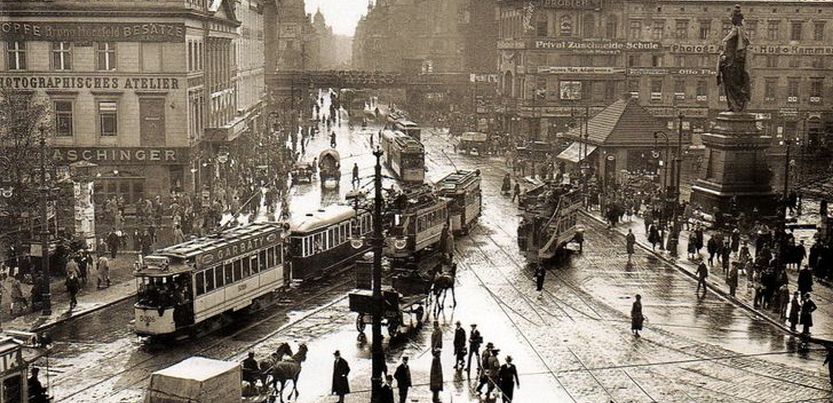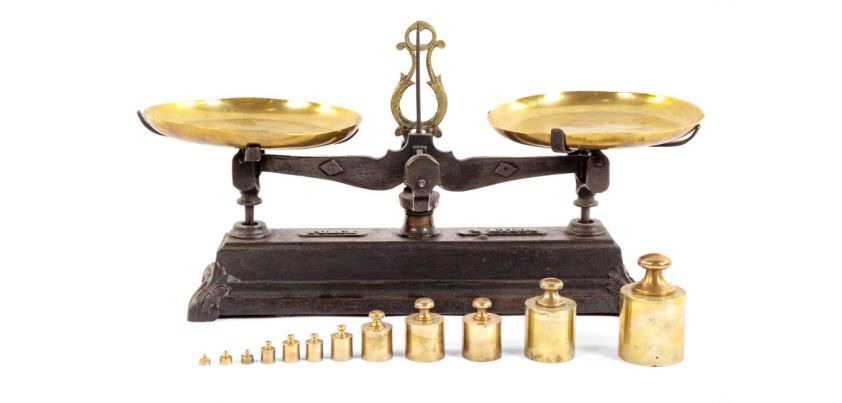 This early story by Vladimir Nabokov is not about places to see in Berlin, but rather the narrator’s observations of some everyday aspects of city life. Through a series of vignettes he describes pipes left on the footpath, the streetcar system, people he sees working on the streets, the city zoo and the pub in which he is drinking with a friend. The major theme is the relationship between time and memory: how some things we experience today will become “future recollections”, and the artist’s duty to record his/her experiences in detail for the benefit of future generations. More…
This early story by Vladimir Nabokov is not about places to see in Berlin, but rather the narrator’s observations of some everyday aspects of city life. Through a series of vignettes he describes pipes left on the footpath, the streetcar system, people he sees working on the streets, the city zoo and the pub in which he is drinking with a friend. The major theme is the relationship between time and memory: how some things we experience today will become “future recollections”, and the artist’s duty to record his/her experiences in detail for the benefit of future generations. More…
Mrs. Bathurst
 A major theme of this enigmatic story by Rudyard Kipling is the potential destructive power of love. Interestingly, we never meet the two central characters: Mrs. Bathurst, a New Zealand hotel keeper renowned for her kindness to needy sailors, and “Click” Vickery, a naval warrant officer who once had a serious affair with her. Vickery becomes so obsessed with a cinematograph clip in a traveling circus showing Mrs. Bathurst in London that he deserts his ship and follows the circus to the next town. Other themes include alienation, chance and accident, ambiguity, passion, death and guilt. More…
A major theme of this enigmatic story by Rudyard Kipling is the potential destructive power of love. Interestingly, we never meet the two central characters: Mrs. Bathurst, a New Zealand hotel keeper renowned for her kindness to needy sailors, and “Click” Vickery, a naval warrant officer who once had a serious affair with her. Vickery becomes so obsessed with a cinematograph clip in a traveling circus showing Mrs. Bathurst in London that he deserts his ship and follows the circus to the next town. Other themes include alienation, chance and accident, ambiguity, passion, death and guilt. More…
Swaddling Clothes
 The major theme of Yukio Mishima’s Swaddling Clothes is the loss of traditional Japanese values to Western modernization. Other themes include class, morality, gender roles, compassion, fear, and sacrifice/atonement. The callous swaddling of an illegitimate baby in newspaper and protagonist Toshiko’s conviction that it is destined to grow up a poverty-stricken criminal underlines Japan’s rigid class structure. Her husband’s heartless description of the delivery demeans women who contravene social norms. When Toshiko does this (by taking a walk alone at night to contemplate her own child’s future and unsatisfying Western lifestyle), she comes face to face with her prophesy. More…
The major theme of Yukio Mishima’s Swaddling Clothes is the loss of traditional Japanese values to Western modernization. Other themes include class, morality, gender roles, compassion, fear, and sacrifice/atonement. The callous swaddling of an illegitimate baby in newspaper and protagonist Toshiko’s conviction that it is destined to grow up a poverty-stricken criminal underlines Japan’s rigid class structure. Her husband’s heartless description of the delivery demeans women who contravene social norms. When Toshiko does this (by taking a walk alone at night to contemplate her own child’s future and unsatisfying Western lifestyle), she comes face to face with her prophesy. More…
The Balek Scales
 This story from Heinrich Böll is a social commentary about a rich family’s exploitation of farm workers. This occurs on three levels, characterized by different forms of “scales”: 1) systematic cheating, involving an incorrectly balanced set of weighing scales; 2) legal injustice, where the scales of justice are weighted firmly in favor of the landowners; and 3) social injustice, where the imbalance of power results in poor pay, long hours, and dangerous working conditions. The workers are incensed by the cheating, but accept the other injustices. Other themes: the whistle-blowing family’s courage and pride, church and wider community apathy. More…
This story from Heinrich Böll is a social commentary about a rich family’s exploitation of farm workers. This occurs on three levels, characterized by different forms of “scales”: 1) systematic cheating, involving an incorrectly balanced set of weighing scales; 2) legal injustice, where the scales of justice are weighted firmly in favor of the landowners; and 3) social injustice, where the imbalance of power results in poor pay, long hours, and dangerous working conditions. The workers are incensed by the cheating, but accept the other injustices. Other themes: the whistle-blowing family’s courage and pride, church and wider community apathy. More…
Blackberry Winter
 This story by Robert Penn Warren is set in rural Tennessee during the 1930s. A nine-year-old boy is affected for life when a menacing-looking tramp with a large switchblade in his pocket, carrying a mysterious newspaper-wrapped package, visits his family farm. Although the surly man is not dressed for farm work, the boy’s mother offers him food and some odd jobs. The tramp is clearly unhappy about the work she offers, and shows no gratitude when the boy’s father pays him and orders him off the property. Themes include innocence, identity, man (farming) vs. nature, poverty, dignity and father-son relationships. More…
This story by Robert Penn Warren is set in rural Tennessee during the 1930s. A nine-year-old boy is affected for life when a menacing-looking tramp with a large switchblade in his pocket, carrying a mysterious newspaper-wrapped package, visits his family farm. Although the surly man is not dressed for farm work, the boy’s mother offers him food and some odd jobs. The tramp is clearly unhappy about the work she offers, and shows no gratitude when the boy’s father pays him and orders him off the property. Themes include innocence, identity, man (farming) vs. nature, poverty, dignity and father-son relationships. More…